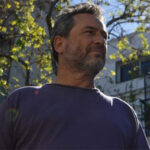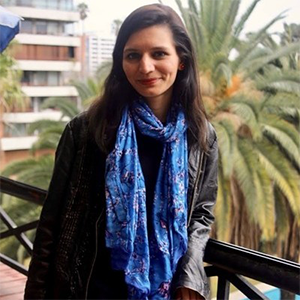jessica from random family
From The Jewish Son
Jessica Sequeira
A breathtaking short novel about the complicated feelings of hate and pity in familial love, by an acknowledged Latin American master.
A brilliant and dark tour de force, The Jewish Son presents the delicate archeology of the stubbornness of a boy who demands his parents’ attention. It is a brutal confession of the lies necessary to win a space of approval in a troubled family, a treatise on the excesses of love and the paradoxical lack of affection that is never enough, an accomplished narration of childhood from the point of view of the adult gaze, and a rewriting of Kafka’s Letter to His Father. As his father’s imminent death becomes an ever-more concrete reality with surgeries, caregivers, and sedatives, and his mother grows obsessed with visits to the rabbi and amasses saint cards and Buddhist prayers, the narrator evokes the remnants of the rejection that pervaded his childhood. Without yielding to the idealization of youth or to the delight in pain before physical decay and death, Guebel dissects, beautifully although with discomfort, his very early conversion to the dream of literature as an act of reparation.
The Jewish Son is now out via Seven Stories Press.
—
A vocation subjects you to its consequences. As soon as I knew I wanted to be a writer, I lost my talent for drawing, school became a forced march through the desert of ennui, and the seclusions of reading hijacked the charms of adventure and open-air sports. The process wasn’t a calm one: I raged against the loss of my possibilities, against the reduction of my life and its condensation into printed symbols. The discovery of the arbitrary condition of language was a private tragedy. It happened on an ordinary day, in summer. I was at the house of my maternal grandparents, and on the table was an oilcloth covering. For a while I entertained myself, tracing the geometrical motifs of its pattern. At some point, I felt hot—the skin on my arm, resting on the tablecloth, had begun to stick to the material—and I wanted to pour myself a glass of Refres-Cola and soda water. I reached out a hand and was about to grab the bottle of concentrated syrup, when all at once it struck me that the relation between objects and the words designated for them was not, as I’d assumed until then, an essential one. The glass container called “glass” could be “murta” or “rawxckgra”; the Refres-Cola, “xangu” or “kañdjfdikd”; the soda water, “hdkdlal”; and the water and the bubbles of gas that composed it, “kdaljdfkl” and “ieuryrtn,” respectively. When I perceived this fracture, my world trembled. If each element of the totality was defined and delimited in a random way, then the reality of the universe itself dissolved, or at least its illusion of wholeness. When I discovered this, I felt an abyss open before my feet. It’s curious, because in my place another child might have discovered a fount of unsuspected richness in the combinatorial possibilities offered by the arbitrary relation between words and things (and in the concentric discovery that a word is also a thing, arbitrarily constituted by smaller units); maybe for him, this would have inspired an exploration of the rhythmic, sonorous, syntactic capacities of each language. By contrast, it led me to cling to the edge of the precipice of my own language. To read, write, and speak only in Spanish became a way of renouncing the legacy of my elders and forging a path of my own (if I didn’t speak Yiddish, I’d be less Jewish, more Argentine). It was also a wager, destined beforehand to failure, to fix a single name to each object, as a result of its use. But now that the rift was open, other evidence filtered through its crack; or maybe the evidence came prior to this discovery, and was what motivated it. During breaks at school, students in the upper grades would amuse themselves by “planting the seed” in the minds of those in lower grades about the method by which the human species conceives, and the way the female egg is courted by millions of sperm until one sperm at last manages to cross through the plasma membrane and produce fertilization. That scenario pointed to a million possible swarming identities desperate to exist, which ultimately hurtled into a void of nothingness after a single sperm accomplished its mission. Such waste gave me vertigo, and also let me peek into the enormous abyss of chance that informed those wild dances of heated corpuscles, and enabled the conquest of the maternal egg by the sperm that bore my features. I’d experienced enormous luck in having defeated millions of rivals. But at the same time, this achievement proved that my own existence was not the effect of a clear, distinct, unique decision—the desire of my parents to have me—but was instead the search for a son or daughter in any form, a human being capable of occupying that place. Judging by the way they treated me, it was clear that they weren’t totally satisfied with the result. In any case, the almost infinite series of elements that had combined for me to exist with my name, my primary and secondary physical features, and my precise historical time, country, and family, was contingent and not determined, random and not essential.
To write thus implied a decision to close the hiatus, to develop a method that would give a personal trajectory and unique pattern to the oilcloth on the table, whose identity was still anonymous and whose signature might have belonged to any other. With the relationship between names and things broken, the world continued to vibrate in terrifying possibility, but I clung with greater assurance to the edge of its precipice: I’d decided to be what I was. Even if, as I would soon realize, this meant paying a price.



